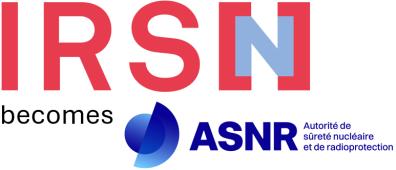Training through research
Since 2004, the Institute has placed special emphasis on this mission by allocating an annual budget of €2,600,000 to its needs. The result has seen an increasing number of young research scientists joining IRSN laboratories each year, while targeting one hundred doctoral students and thirty placement positions for post-doctoral research. In parallel, IRSN is encouraging its senior researchers to apply for research director certification.
Like most research organisations, IRSN considers training through research as one of its essential missions, transferring the knowledge and skills acquired in its laboratories. At IRSN, research is conducted with a purpose: beyond the quest for knowledge, it aims to reinforce the quality and pertinence of its expertise in nuclear and radiation risks, in order to provide support to public policy and the relevant players in society. In this context, training through research provides an ideal intellectual environment, offering high-quality joint supervision, and access to state-of-the art equipment, aiming not only to impart the methods, but also to nurture an aptitude for anticipating the societal issues raised at the Institute.
Training through research is also an integral part of the general policy implemented by IRSN to reinforce its relationships with universities, institutes of higher education, and eminent scientific organisations. These collaborative projects are fundamental, since they contribute to the reinforcement of basic research, which in turn supports focused research:
- They provide an influx of new skills that complement the in-house competencies of the Institute.
- They contribute to the validation of scientific results by initiating exchanges with outside experts, opening research work to new ideas.
- Collaborative projects allow IRSN experts to participate in training programmes offered by its partners, thus encouraging its researchers to push investigations forward in their own discipline, furthering their action within the Institute.
A large number of these theses are conducted as part of the Institute’s collaboration with other organisations working in focused research, such as INERIS and BRGM, or local authorities, such as the regional councils of Provence-Alpes-Côte d’Azur and Ile-de-France, or industrial partners (EDF, AREVA, etc.). These partners provide financial support and the opportunity for doctoral students to apprehend the issues raised by their thesis research from a broader viewpoint.
Training through research is also part of the evaluation process for IRSN’s research work and contributes to achieving peer recognition. Theses first appear in eminent publications, thereby enhancing recognition of the Institute. They are then presented before a jury, an important form of direct evaluation of the Institute’s work, through the work of its doctoral students. Finally, by obtaining certification as a research director and presenting a thesis before a jury, researchers from the Institute receive peer recognition and gain an introduction to university research.
In the same way that collaboration with universities spreads awareness of the Institute’s work, particularly among young scientists, quality training through research is essential for attracting young researchers with a high potential for innovation to IRSN. Doctoral students and post-doctorate researchers constitute a significant potential employment force, quickly operational, with known capabilities.
